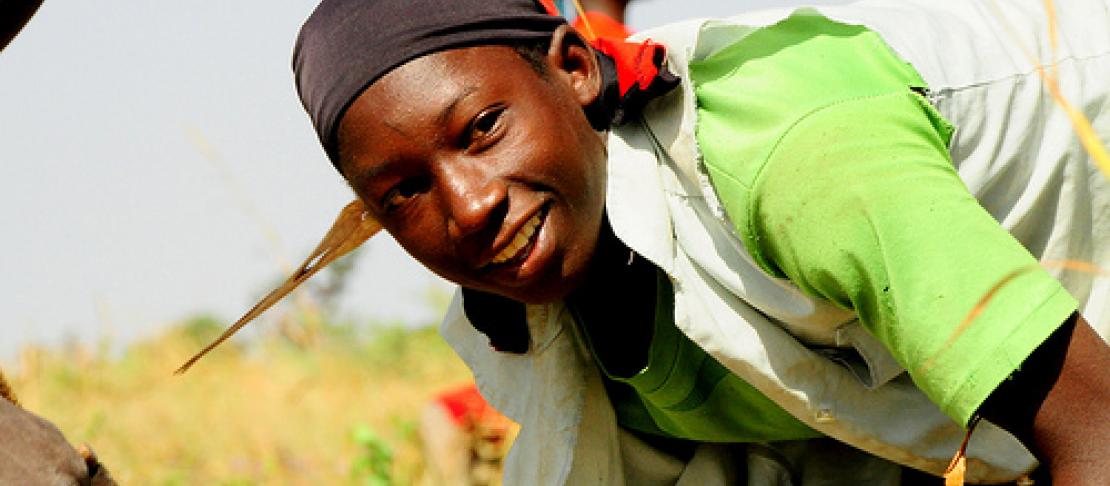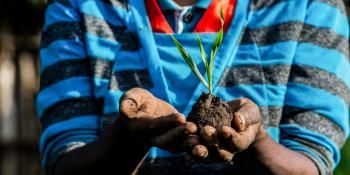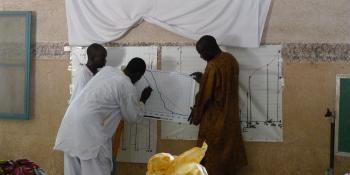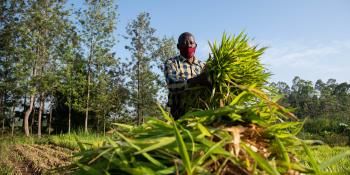Climate information: Malian farmers' most valuable tool?

Last year in villages across Mali, some farmers harvested bumper crops of millet, sorghum and maize, while their neighbours struggled to produce a high-enough yield to feed their families. Yet they all faced the same dry spells, high temperatures and unpredictable rains.
So what caused such dramatic difference between these two groups? The first group of farmers was not simply lucky. Rather they were reaping the benefits of having had access to weather information and weather-based farm management advisories, thanks to an innovative programme set up by the Mali government in an effort to stave off hunger.
Since the 1970s, Mali and its Sahelian neighbours have been tormented by a series of devastating famines. In a drought-prone country with little irrigation, 80 percent of the population depends on agriculture for its livelihood. Agriculture is an inherently risky venture, but remains a basic way of life.
Back in 1982, the country’s national meteorological service (la Direction Nationale de la Météorologie) began supplying local farmers with weather and climate information, to help reduce the risks they face. Since then, nearly 2,500 farmers have benefited.
Today, researchers from a global climate and food security initiative want to learn from Mali’s successes, so that farmers in other parts of Africa and South Asia can also safeguard their crops from failure.
“A changing climate means that rainfall is getting more and more variable,” says Dr Jim Hansen of the CGIAR Research Program on Climate Change, Agriculture and Food Security (CCAFS). “Farming is becoming an even riskier business for millions of people in the developing world, but the Mali programme has proven that good information can make a huge difference.”
Dr. Hansen and his CCAFS team are studying Mali’s pioneering initiative to understand what made it successful and how it could become a model for other countries at risk, in collaboration with the International Research Institute for Climate and Society at Columbia University, the U.S. Agency for International Development (USAID) and regional partners in West Africa.
The researchers note that farmers in Mali have reported a number of benefits from having access to better climate information. In addition to increased yield and income, the programme has empowered the farmers to seek more information about different farming techniques and given them the confidence to invest in inputs, such as improved seeds, in order to better adapt to changing farming conditions.
FARMERS' NEEDS FIRST
“The success of Mali’s program has a lot to do with the programme being jointly managed by a number of different groups,” says Dr Robert Zougumoré, CCAFS’ West Africa programme leader.
Government agencies, research institutions, local-language radio stations, extension workers, and farmer groups all play important roles. “However, you have to start with the farmers’ needs; they know best what information is needed to farm successfully,” says Zougumoré.
Often, the agencies that supply climate information are disconnected from the needs of potential users. Farmers want information to guide basic decisions, such as when to plant their seeds. They must time planting early enough to benefit from the full rainy season, but not so early that a dry spell could destroy the seedlings. Good information could help them balance the risks and benefits of early planting.
“Farmers are generally experts about how to farm their land. But when traditional knowledge can’t keep up with rapidly changing conditions, outside information can often help them adapt their practices,” says Dr Hansen.
His team is already working with farmers in East and West Africa to learn about the different choices they would make based on different seasonal climate forecasts.
The CCAFS study of the Mali programme and the factors that contribute to its success will be shared with the Climate Services Partnership, which aims to enhance climate information services worldwide. Meanwhile, donor agencies that are keen to invest in proven climate change adaptation activities are watching closely to learn whether the Mali programme could be scaled up and extended to different regions.
In the increasingly volatile world of smallholder farming, good climate information may be the most valuable tool of all.
Vanessa Meadu is communications manager at the CGIAR Research Program on Climate Change, Agriculture and Food Security (CCAFS). Follow their work on twitter at @cgiarclimate.
This article was originally posted on Reuters AlertNet, as part of a series of posts in the lead-up to Agriculture and Rural Development Day, on Dec. 3, held in parallel with the climate change negotiations in Durban, South Africa in late 2011.


